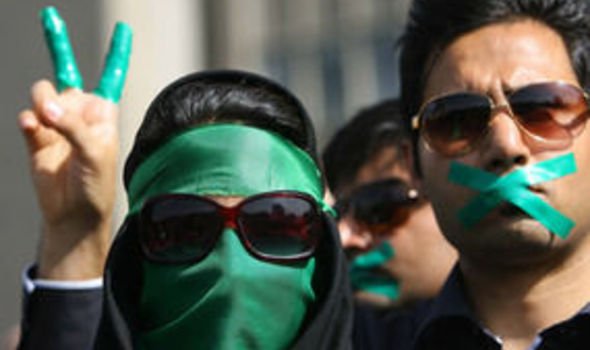 We wondered how Mousavi and the demonstrators would react to Khamenei’s provocation. We now have our answer. Mousavi remains uncowed, at the head of the protests. The uneasy stand off having given way to extremes of violence and brutality, the regime is now facing a deep crisis of legitimacy. Any semblance of a wider purpose has long since dissipated. All that remains is the authoritarian instinct, the reflexive illiberalism, the ugly philosophy of unfreedom. And Iranians are rejecting it.
We wondered how Mousavi and the demonstrators would react to Khamenei’s provocation. We now have our answer. Mousavi remains uncowed, at the head of the protests. The uneasy stand off having given way to extremes of violence and brutality, the regime is now facing a deep crisis of legitimacy. Any semblance of a wider purpose has long since dissipated. All that remains is the authoritarian instinct, the reflexive illiberalism, the ugly philosophy of unfreedom. And Iranians are rejecting it.As this crisis unfolds on Youtube, in our email boxes and our twitter feeds, the pressure to tilt policy in favour of the protesters grows. The clamour on the neoconservative right for a stronger line grows louder and more intense by the day. Obama has so far rightly resisted it. The best course of action was always to maintain a studied neutrality and that remains the case. So far Obama’s cautious realism has been pitch perfect; his call on the Iranian government to “stop all violent and unjust actions against its own people” managing to signal coded support for the protestors, while maintaining enough studied ambiguity to prevent accusations of meddling. And it must continue.
 Predictably, the siren voices urging intervention - so far confined to the outer reaches of the neoconservative fringe - are in danger of breaking out and infecting the wider discourse. Just last night, our very own Iain Dale joined the chorus, urging a much more robust line on the government. Inchoate and lacking definition, these calls reflect a heartfelt desire to do something, anything, in the face of vicious brutality and injustice. On that very human level, they are understandable – admirable, even - but they make for bad foreign policy. Contra the ideologues on the neoconservative fringe, it is the job of those tasked with steering America through this crisis to eschew universalising, moralising rhetoric in favour of the cold calculation of interests.
Predictably, the siren voices urging intervention - so far confined to the outer reaches of the neoconservative fringe - are in danger of breaking out and infecting the wider discourse. Just last night, our very own Iain Dale joined the chorus, urging a much more robust line on the government. Inchoate and lacking definition, these calls reflect a heartfelt desire to do something, anything, in the face of vicious brutality and injustice. On that very human level, they are understandable – admirable, even - but they make for bad foreign policy. Contra the ideologues on the neoconservative fringe, it is the job of those tasked with steering America through this crisis to eschew universalising, moralising rhetoric in favour of the cold calculation of interests.And that is just what Obama and his team are doing. Watching, waiting, viewing this through the prism of enduring American interests, not allowing policy to get caught up in the swirl of events. One thing the neoconservatives are determined to do is to make this about America, to place America at the centre of the narrative; their growing impatience with Western inaction a rage against the idea of American impotence. One thing they cannot abide is an America on the periphery. This is a familiar kind of solipsism, one to which a young republic is especially vulnerable, and it must be overcome. The desire to insert ourselves at the centre of every crisis must be resisted. In its place there needs to be a much more disciplined and focused response. We need a diplomacy that comes to terms with and acknowledges limits. Thankfully, mercifully, after the excesses of the Bush years, that is exactly what we are getting.
